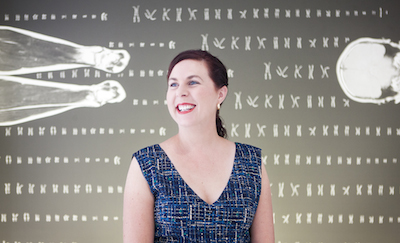
Researchers from the Perkins Neurogenetic Diseases Laboratory were asked to help solve the case of two unrelated patients, a one-year-old and four-year-old experiencing severe muscle stiffness and limited movement.
During their investigation the multi-national team of researchers studied a muscle protein that is strongly influenced by calcium.
The protein, known as tropomyosin-3 (TPM3), is vital for skeletal muscle development and plays a crucial role in healthy movement. When defective, this protein was known to cause a range of muscle disorders.
The researchers examined how the defective TPM3 in these patients might impact physical movement.
They focussed on determining whether the role of calcium in muscle contraction was disrupted, in order to establish the cause of severe muscle stiffness in these patients.
Dr Kristen Nowak from the Neurogenetic Diseases Laboratory said this a world-first case where a TPM3 defect has produced these symptoms.
“All diseases caused by a defective tropomyosin-3 up to now have had muscle weakness as a common feature. The children in this case had very severe muscle stiffness from birth, the absolutely opposite effect,” Dr Nowak said.
“Previous cases with this genetic defect have generally had minimal sensitivity to calcium, but these patients are very sensitive. This information is really important for devising possible treatments for these patients or others with similar symptoms.”
Dr Nowak said the study broadens the spectrum of diseases that can be caused by defects in TPM3, expanding scientific knowledge of how the protein can lead to disease.
Clinicians treating patients with similar symptoms will be able to provide targeted gene screening as a result of this study, whereas previously this protein wouldn’t have been considered for testing due to the contradictory symptoms.
The first muscle disease associated with tropomyosin-3 was discovered by Neurogenetic Diseases Laboratory Head Professor Nigel Laing 20 years ago.
